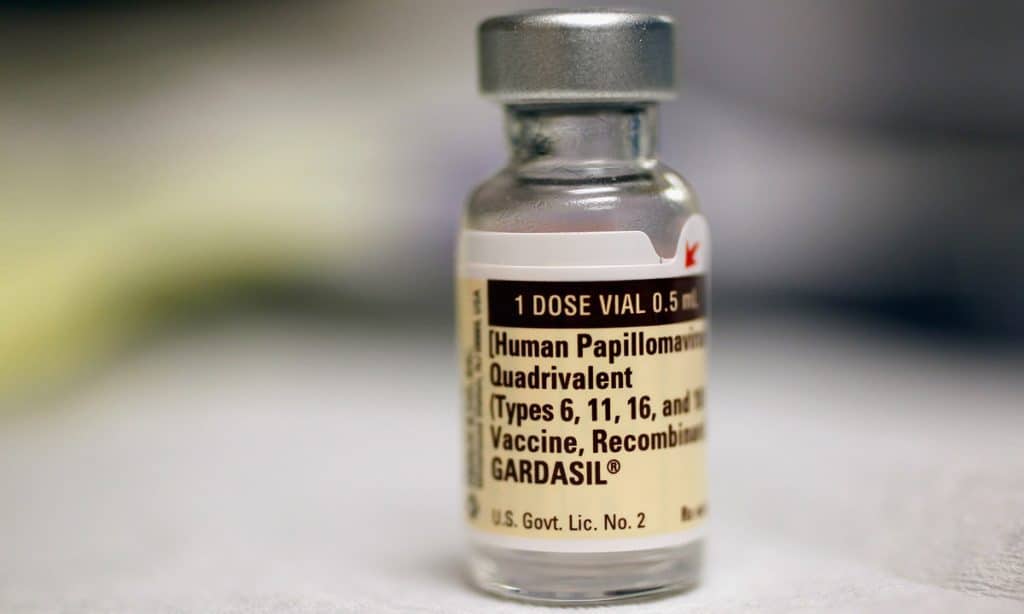By The Fresh Toast's Kate-Madonna Hindes, provided exclusively to Benzinga Cannabis.
With ever-climbing HPV-positive cancer rates, research on the effect CBD and THC has on the human papillomavirus can’t come soon enough.
Often called the common cold of the sexual world, the Centers for Disease Control states that HPV has infected over 79 million individuals worldwide. Both prevalent and highly contagious, HPV tends to thrive on porous skin located in the throat, anal cavity, cervix and tongue, making it extremely difficult to test and eradicate around the world.
Risk factors of HPV are a compromised immune system, smoking and poor diet and sleep. Thought to cause over 70% of cervical cancers, the World Health Organization states that HPV has more than 100 types and has one of the best known defenses: vaccination.
For decades, researchers believed that marijuana played a role in HPV-related cervical cancer. However, a 2010 study, published in the U.S. National Library of Medicine, found that marijuana did not cause cervical cancer.
Understanding HPV’s infectivity
While once thought to only be contracted through sexual conduct, studies in the last two decades have showcased that HPV can live on surfaces. One study, published in the British Medical Journal in 2002 found HPV DNA could live in a clinical environment, without skin-to-skin contact. A more recent and in-depth study, featured in Taylor & Francis Online, found that when comparing the bovine papillomavirus with the human papillomavirus, both showed a remarkable ability to retain a 50% infectivity at room temperature after 3 days.
Additionally, in 2014, Penn State further researched on earlier findings, finding that unless a special method of cleaning instruments (autoclaving) or bleach was present, HPV was persistent on surfaces and was able to be transmitted. While still cited as a “sexually-transmitted infection,” HPV appears to be anything but.
Craig Meyers, a professor of microbiology and immunology at Penn State College of Medicine explained, “Chemical disinfectants used in the hospitals and other healthcare settings have absolutely no effect on killing human papillomavirus… unless bleach or autoclaving is used in the hospital setting, human papillomavirus is not being killed and there is a potential spread of HPV through hospital acquired or instrument or tool infection.”

Photo by Joe Raedle/Staff/Getty Images
THC’s Role with HPV
A recent study published by Joseph A. Califano III, MD, found an interesting juxtaposition between HPV and THC. He shared in a report to UC San Diego Health that he felt since HPV-related head and neck cancers along with marijuana use were both on the rise, there might be a correlation between the two. His father, Joseph A. Califano Jr., is the former Secretary of State and well-known founder and chairman to the National Center on Addiction and Substance Abuse (CASA) at Columbia University, who heads an organization speaking out against marijuana.
In the study, Califano III cited that THC turned on the p38 MAPK, (protein that respond to stress or other stimuli) and while the protein was signaled on, HPV-positive head and neck cancer lost apoptosis (a form of cell death.) Meaning, THC seemed to ignite the protein that allowed HPV to continue growing at an alarming rate. Citing the study as a, “cautionary tale,” Califano III is now heading a study to see if CBD has the same effect.
Interestingly, an earlier study directly opposite of Caifano’s findings was published in 2016 by North-West University in Potchefstroom, South Africa.
Citing the same method of apoptosis, researchers found that CBD could be considered anticarcinogenic for cervical cancer. The data further illustrated that, “cannabidiol rather than Cannabis sativa crude extracts prevent cell growth and induced cell death in cervical cancer cell lines.” Could cannabis hurt head and neck cancers while CBD kills cancer cells in the cervix?
Kellie Lease Stecher, MD, a gynecologist in Edina, a suburb of Minneapolis, Minn. believes both studies highlight the importance of ongoing research. “While marijuana use is climbing due to legality, more studies must be done to look at the HPV’s DNA and how each strand is effected by CBD or marijuana,” Stecher explained. “Further studies should examine how HPV expression is altered by marijuana or its components in different tissues; as we don’t have enough data to determine if CBD or THC is helpful or harmful due to conflicting data.”
With an eye to the future and ever-climbing HPV-positive cancer rates, research can’t come soon enough.
Featured image by Getty Images
Original publication: 2020
© 2025 Benzinga.com. Benzinga does not provide investment advice. All rights reserved.
Trade confidently with insights and alerts from analyst ratings, free reports and breaking news that affects the stocks you care about.
Cannabis is evolving – don’t get left behind!
Curious about what’s next for the industry and how to leverage California’s unique market?
Join top executives, policymakers, and investors at the Benzinga Cannabis Market Spotlight in Anaheim, CA, at the House of Blues on November 12. Dive deep into the latest strategies, investment trends, and brand insights that are shaping the future of cannabis!
Get your tickets now to secure your spot and avoid last-minute price hikes.